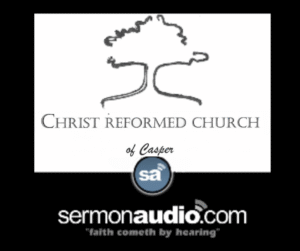In the Old Testament law, people could offer gifts to God as part of vows that they made. These were usually promises made to God as acts of thanksgiving for some blessing God had given. There were restrictions on what could be offered as such an offering: nothing torn, broken, maimed or sick. They were taught to offer God only their best, as should we.
In Ecclesiastes, Solomon says, “When you make a vow to God, do not delay to pay it; For He has no pleasure in fools. Pay what you have vowed– Better not to vow than to vow and not pay.” (Ecc 5:4-5 NKJ) In general, this shows us that God takes promises very seriously, and expects us to keep the commitments we make, even commitments that He has not required us to make.
Witnessing a membership vow is a wonderful reminder of the commitments we make to God in the church. The church is a voluntary organization; we are not compelled to be members. Believers in Christ choose by faith to join themselves to His body, the church, to live under its authority and to use their gifts to the good of the church. The practice reflects the fact that public identification with the church is necessary. It is necessary for the church to know who it is that is under its authority. Some find the practice of membership authoritarian. But it is actually well in accordance with the freedom of the Christian church that it exercises its authority only over those who voluntarily place themselves under that authority.
God takes our vows very seriously, and so should we. When we make commitments, we should be sure that they are commitments that we intend to keep. God has no pleasure in the sacrifice of fools. He has no pleasure in those who make promises that they do not intend to keep. When we see brothers and sisters in the faith taking these vows and expressing their solemn intent to keep them, by God’s grace, let it be a reminder of the vows we all have taken, and not just our church membership vows, but also our commitments in every area of our lives- our marriage vows, our business contracts and the like. Let it remind us to be people of our word. God always keeps His promises, and we are made in His image.
When we say that the church is a voluntary organization, and that people voluntarily choose to put themselves under its authority, let that not be understood to be saying that church membership is optional. It is optional only in the sense that the Christian life itself is optional. One can choose not to associate with the bride of Christ; by doing so, one chooses not to associate with Christ Himself. This is not to say that church membership is saving of itself, or that all those who do not hold church membership are not believing. But it means that a refusal to be associated with the church of Christ ultimately demonstrates a lack of repentance and faith.
The church is where God has deposited His means of grace- the preaching of the word and the sacraments. Those means of grace operate within the structure of authority that God has ordained to govern the church. If we desire to grow in grace, then we are called to associate ourselves with the church, submit to its authority and lay hold of those means.

